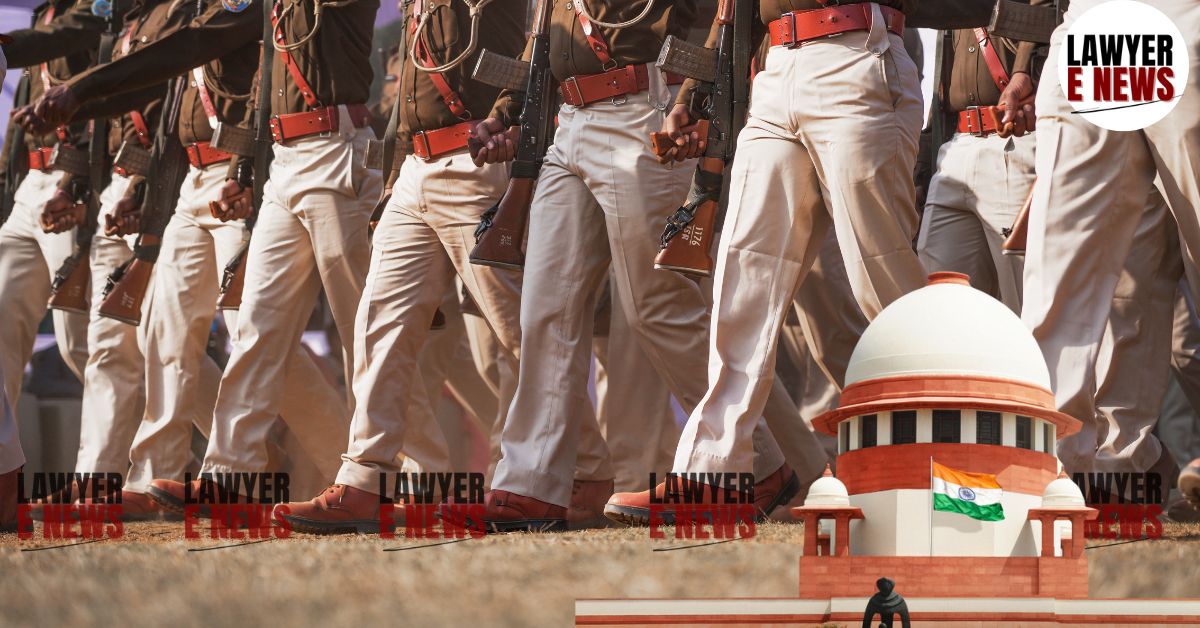-
by Admin
16 February 2026 1:47 PM



“A Common Man May Exceed Limits, but Not the Police” — Supreme Court Deplores Haryana Police for High-Handedness and Mechanical Arrests. Supreme Court, in Vijay Pal Yadav vs. Mamta Singh & Others, sternly reminded the Haryana Police and law enforcement agencies across India that “even a criminal, under the law of our land, enjoys certain safeguards in order to ensure protection of his person and dignity.” The Bench of Justice Ahsanuddin Amanullah and Justice Prashant Kumar Mishra censured the Haryana Police for arresting the petitioner in blatant disregard of the landmark guidelines laid down in Arnesh Kumar vs. State of Bihar.
The Court found prima facie that the petitioner was arrested and physically assaulted by the police without following mandatory procedures under Section 41(1)(b)(ii) CrPC. The Court commented, “We find that there appears to be evident high-handedness on the part of the police in this case.”
Supreme Court: “Checklist under Section 41 CrPC mechanically filled defeats judicial oversight”
The Court, scrutinizing the checklist supposedly prepared by the police before arrest, observed: “Perusal of the same prima facie does not inspire confidence. Rather, it appears that only as a formality, the same has been submitted.” The Court further stressed, “We express our strong reservations with regard to filling-up of the checklist in a mechanical manner. Further, we caution and order that in futuro, such acts should not recur.”
The Bench went a step further by directing not only the Haryana police but also all Judicial Magistrates to stop mechanically accepting such checklists without due scrutiny. The Court underlined that the statutory safeguard under Section 41 CrPC is not an empty formality but a protection of personal liberty.
Director General of Police, Haryana Personally Cautioned — Zero Tolerance Mandated
While refraining from interfering in the pending criminal case, the Court issued a stern warning to Haryana Police. It categorically held, “The concerned police officers are cautioned and warned to be careful in future. The Director General is also directed to ensure that such type of occurrences do not recur and there should be zero-tolerance on behalf of the senior officer(s) with regard to any alleged transgression of authority by any subordinate officer(s).”
The Court emphasized the larger public interest involved, stating, “The police is a very vital part of the State apparatus and has a direct bearing on the safety and security of the society at large and individuals in particular.”
Court Directs Nationwide Circulation of Safeguards to DGPs and Delhi Police Commissioner
The Supreme Court, invoking its constitutional responsibility to uphold human dignity, ordered that the judgment along with its previous ruling in Somnath vs. State of Maharashtra be circulated to all DGPs and the Delhi Police Commissioner.
Quoting Somnath, the Court reiterated, “There will be a general direction to the police forces in all States and Union Territories as also all agencies endowed with the power of arrest and custody to scrupulously adhere to all Constitutional and statutory safeguards.”
In closing, the Court warned that any future recurrence will invite severe consequences, stating, “We are confident that the Director General of Police has been appropriately sensitized... failing which, a very strict view shall be taken, and coercive measures shall also follow against the errant personnel.”
Date of Decision: 26.03.2025
